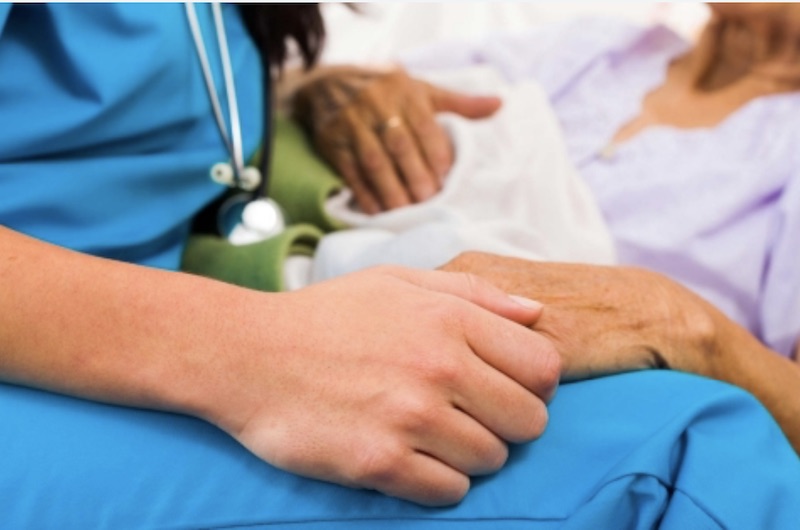latest
Emotional arguments precede aid in dying hearing in Massachusetts

By Katie Lannan
State House News Service
SEPT. 30, 2021…..Nearly a decade after voters narrowly rejected a ballot question seeking to legalize medical aid in dying, state lawmakers are once again set to delve into the emotional testimony, ethical debates and logistical questions around the issue.
Ahead of a Friday Public Health Committee hearing on bills (H 2381, S 1384) that would allow terminally ill patients who meet certain criteria to request and be prescribed a lethal dose of medication to end their lives, supporters and opponents each held video calls to make their case.
Backers, including some patients with incurable diseases who want to be able to make decisions about the end of their lives, present the policy as a way to relieve pain and suffering when death is imminent and note that 10 other states have adopted some version of the measure.
Those who oppose it warn of potential disparate impacts on people with disabilities, people of color and people who cannot afford life-extending treatments, and say that palliative and home care should instead be made more accessible.
This year, the COVID-19 pandemic is also part of the discussion.
Kim Callinan of Compassion & Choices, a national group that supports medical aid in dying legislation, said the pandemic “has demonstrated the fragility of our lives and also the limits that modern medicine has to relieve end-of-life suffering.”
Meanwhile, palliative care physician Dr. Laura Patrillo said the latest push for the legislation comes at “literally the worst possible time” to implement a policy that would require thoughtful planning by the health care system that is still reeling from the tolls of COVID-19.
“We’re in the midst of a global pandemic and are stretched thinner than we ever have been before,” she said. “The public perception of science and medicine is more fraught and the relationship is more fraught than it ever has been. We’re losing staff and the people who are still here are exhausted and burned out. The health care administration is completely taxed.”
Versions of the bills have been filed for years on Beacon Hill. Last year, the Public Health Committee redrafted and advanced the bills to the Health Care Financing Committee, which did not take further action on them.
Callinan said this session’s legislation has more than 80 cosponsors, including Rep. Ted Phillips, who wrote the first draft of the bill in 2008 as a staffer to its longtime legislative proponent, former Rep. Louis Kafka.
“This bill is not for everyone,” Phillips said. “We have worked very, very hard over the years to make it very clear in the legislation that there is no ambiguity around who this bill affects, that this decision cannot be made for you. This decision would be yours alone.”
Phillips said people interested in pursuing medical aid in dying would need to “jump through hoops” — including having two doctors confirm they have a terminal illness and are expected to die within six months, being deemed “of sound mind,” and making the request on two separate occasions, with time between.
Opponents raise concerns that people will feel pressure to make those requests.
On a call hosted by the Patients Rights Action Fund, Stephanie Packer, a mother in California — one of the states that has legalized medical aid in dying — said her health insurance once informed her it was denying coverage for her “life-extending treatment” for scleroderma, but she would have been able to get medication to end her life for a $1.20 copay.
“There’s so much fear out there, and to hear that the medications that could give me strength, that, that could help me take care of my family, that could help me live long enough to see my kids do amazing things, that those wouldn’t be provided, and I would have no way of accessing them, but if I wanted to, I could pay a dollar and miss everything, just because it’s cheaper,” she said.
Those who want to see a medical aid in dying policy put in place described distress they feel over not having the option available.
Gloucester resident Lee Marshall, who has stage four metastatic breast cancer, said she has a prognosis of “less than a year” and may soon be going into hospice.
“I want more time to be silly with my husband Paul and my friends. I want more time to dance, crack jokes, make pottery and enjoy walks in nature,” she said. “I thought I’d live to my 80s but I probably won’t see 70. I am terrified of lingering pain that will leave me with no pleasure in life and no option to say enough is enough.”
Marshall has testified on past versions of the bill, as has Dr. Roger Kligler, a retired physician with incurable metastatic prostate cancer.
Kligler listed the names of those who had appeared before lawmakers before in support of the legislation and have since passed away, including the late Rep. Chris Walsh. Kligler said that if lawmakers wait, any action on the issue could also come too late for him, Marshall, or perhaps “someone that you know or love.”
“It’s time for the Legislature to act, and I implore them to do so,” he said.
Massachusetts voters in 2012 voted down a medical aid in dying ballot question by a margin of 67,891 votes, with 48.9 percent in favor and 51.1 percent against.
Boston-based disability advocate John Kelly, who serves as director for Second Thoughts Massachusetts and regional director for Not Dead Yet, said the voting maps from that ballot question show the numbers were not even statewide. Brookline approved the measure with 67 percent in favor, he said, while Lawrence voted 69 percent against.
“These laws make dominant the outlook of a professional class obsessed with personal autonomy, achievement and status — thus the concentration on the word ‘dignity’ — over the worldview of a working class that believes in family, connection and reverence for elders,” he said. “By undermining the value placed on old, ill and disabled people, these bills promote writing off people as having too low a quality of life.”
In the nine years since the question came before voters, proponents have been “tightening” up the bill, said Rep. Jim O’Day, who filed the House version this year. O’Day said he expects that work to “truly make a huge difference” and the latest bill contains definitions — like specifics around why someone would be considered terminally ill — that he hopes will put critics’ minds at ease.
O’Day said he wished the bill had been law when his father was at the end of his life.
“We had had this kind of conversation, and he just felt really strongly about having the opportunity, having that ability to make the decision on your own, and as we have the bill written, in consultation with medical personnel and those making certain that the individual’s at full capacity,” he said.
O’Day is a division chair in Speaker Ronald Mariano’s leadership team, and Phillips said he appreciated that it is a member of House leadership “carrying this bill forward.”
“We feel very strongly that this is the year that we can finally make it happen,” he said.
The end-of-life bills are the only items on the agenda for Friday’s Public Health Committee hearing, which will be livestreamed and is scheduled to begin at 9 a.m.
-

 Community6 years ago
Community6 years agoNational Shrine of La Salette Festival of Lights 2017 set to begin
-

 Community6 years ago
Community6 years agoMassachusetts State Police looking for good home for retired dogs
-

 Crime6 years ago
Crime6 years agoFall River ranked most dangerous city in Massachusetts according to report
-

 latest6 years ago
latest6 years agoDurfee student allegedly overdoses on marijuana
-

 Community6 years ago
Community6 years agoVideo of Fall River Police goes viral
-

 Causes6 years ago
Causes6 years agoMissing Fall River woman found deceased
-

 Crime6 years ago
Crime6 years agoFall River Police add names to most wanted list
-

 Causes6 years ago
Causes6 years agoFall River teenager reported missing has been found




